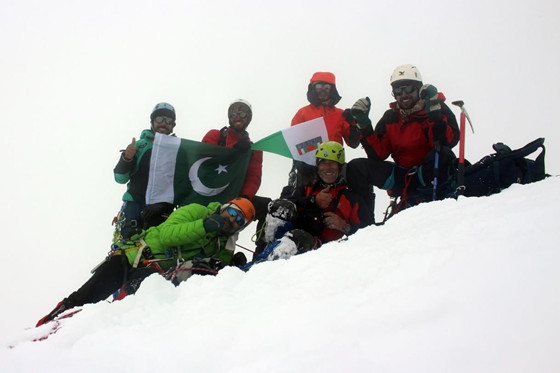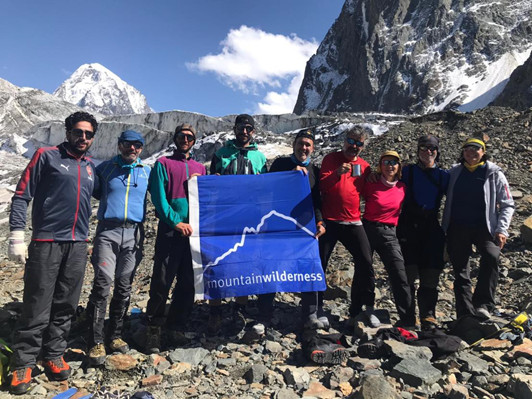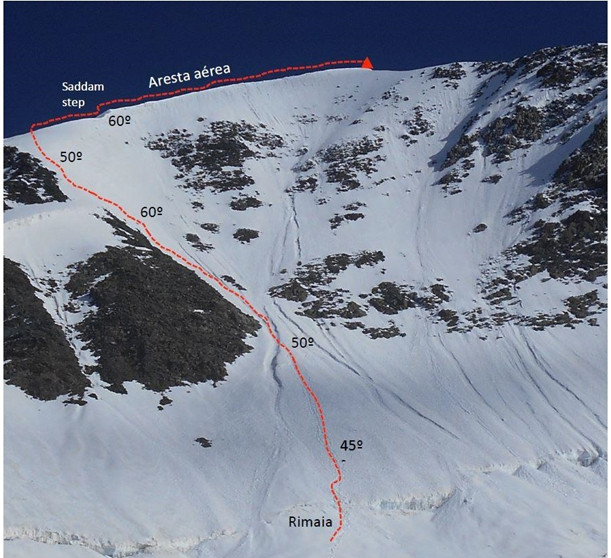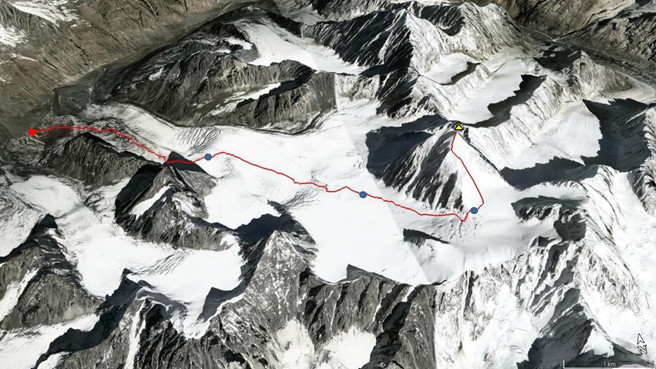The Thalo Zom Expedition
In support of MWI’s Asian Desk project, an international climbing team was set up with the aim of climbing the Thalo Zom, towering over the Swat-Chitral border.
After extensive research in advance, the second ascent of the Thalo Zom was attempted. The first group of the party reached Kalam on 18 August 2019 to be able to make further preparations and to collect information on site, the second part of the team reached the starting point on 25 August 2019. From Kalam we went with our porters on jeeps along the Utrar road, crossing a pass at 3,600 m and entering Kumrat valley. The journey took a whole day.

The two teams included: Carlo Alberto Pinelli (Honorary President of MWI), Afzel Scherazi (President of MW Pakistan), Jordi Quera (President of MWI), Concept Mirò, Montse Soler, Sabine Rentschler, Koki Gassiot, Andrea Bollati, Massimo Marconi, Sadam Hussain, Abrar Saeed, Samiullah Ghaznavi, Anwar Ul Haq, Nadir Allisha (the cook) and is helper Didar Karim, more than 30 porters for the trekking and a policeman.

In almost untouched nature it took the two teams 2 – 3 days to the Thalo Pass (4,220 m) and the base camp (4,090 m) from the starting point (at 2,700 m in the high valley of Kumrat). The path led past shepherd huts and along the river deeper and deeper into the valley to the entrance up to the rocky pass to the 1st base camp of Thalo Zom, at an altitude of about 3,650 m. The nature surrounding us was consistently impressive and pristine and the sheperds we met were friendly. The challenge of the first ascent to Thalo Zom from the South side (the first ascent of an Austrian expedition in 1971 followed a couloir on the West side) determined our pace and we all were well aware of it.
From 23 August 2019 the first exploratory trips to the summit were carried out from the base camp and further camps were set up along the way. The climbing party consisted of Koki Gassiot, Andrea Bollati, Massimo Marconi,
Sadam Hussain, Abrar Saeed and Samiullah Ghaznavi. The organization of the base camp and the cartographic work were carried out by Concept Mirò with the support of Montse Soler and Jordi Quera. After
three days on the glacier and the three camps (camp I at 4,750 m, camp II at 5,100m, camp III at 5,400 m) success was close and on 29
August 2019, at 1 pm, the climbers reached the summit at an altitude of 6,050 m.
THALO ZOM 5,990 m asl
Via: “Guide’s way”,
D- (max. 60°), 600 m. Exposure: south.
First ascent (29/8/19): Massimo Marconi (IT), Andrea Bollati (IT), Koki Gassiot (CA),
Sadam Hussain (PK), Abrar Saeed (PK), Samiullah Ghaznavi (PK).
Why climb Thalo Zom?
The aim of Mountain Wilderness is not only to preserve from degradation the natural integrity of mountain and desert areas of our Planet, but also to fight to preserve the quality of the experience that human beings can live in those extraordinary natural environments. An experience whose deepest meaning relies on silence, loneliness, consciously assumed risk, freedom from external conditioning.
The Swat Project that the Asian Desk of Mountain Wilderness is implementing goes in this direction, both because it aims to suggest to future and increasing numbers of visitors to those mountains a respectful behaviour that does not require building access roads, cable cars, hotels, mountain huts, and because it aims to restore the value of exploring and ascending summits mistakenly considered minor, only because less high or less fashionable. Unknown or little known mountains, where those who really wish to can experience the original exploratory spirit of mountaineering, without having to plan long approach marches, relying on hundreds of porters, without the extensive use of fixed ropes and oxygen tanks, together with dozens of other similar expeditions.
In doing so, Mountain Wilderness sends out a message that is implicitly in contrast with the unregulated proliferation of expeditions – especially commercial ones – which in recent years have ben crowding the classic routes to the eight thousanders in the Himalayas and the Karakorum.
Pushing young mountaineers to confront themselves with many forgotten – though amazing – peaks means contrasting the trend towards a superhuman/amusement park-style mountaineering, which unfortunately seems to prevail in the most arrogant current of contemporary mountaineering.
Carlo Alberto Pinelli

